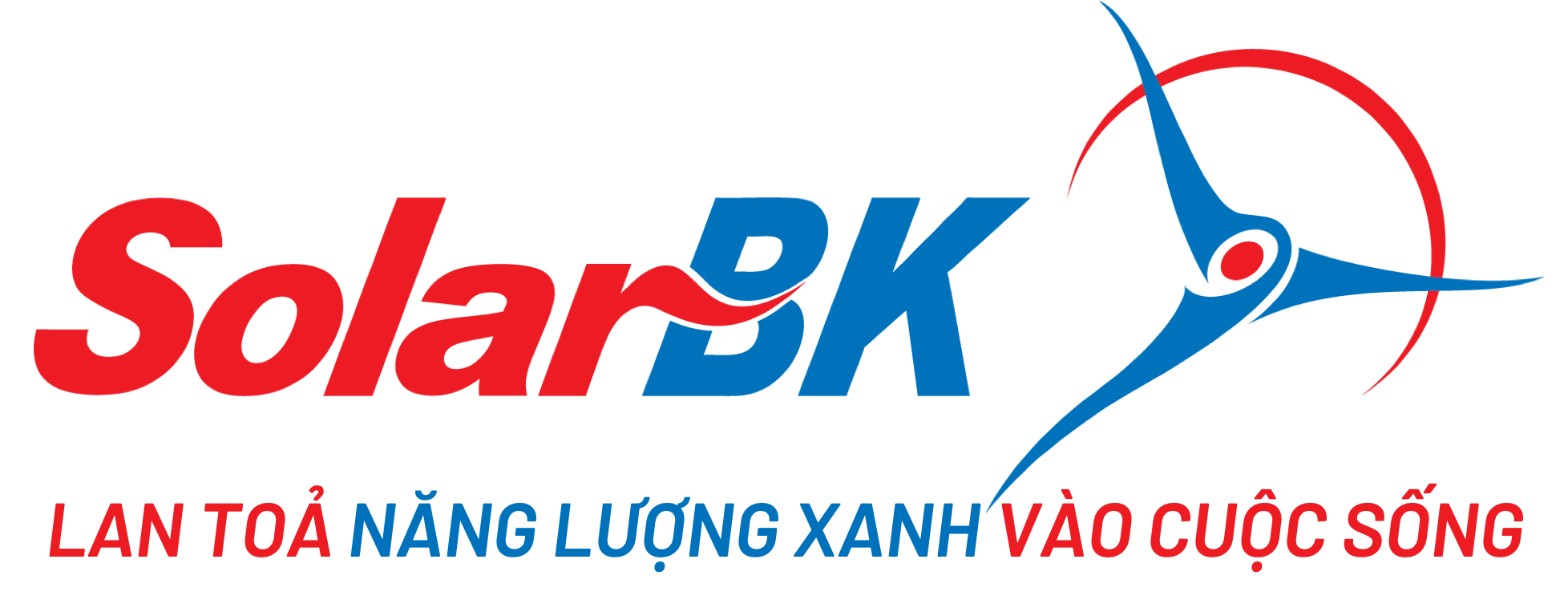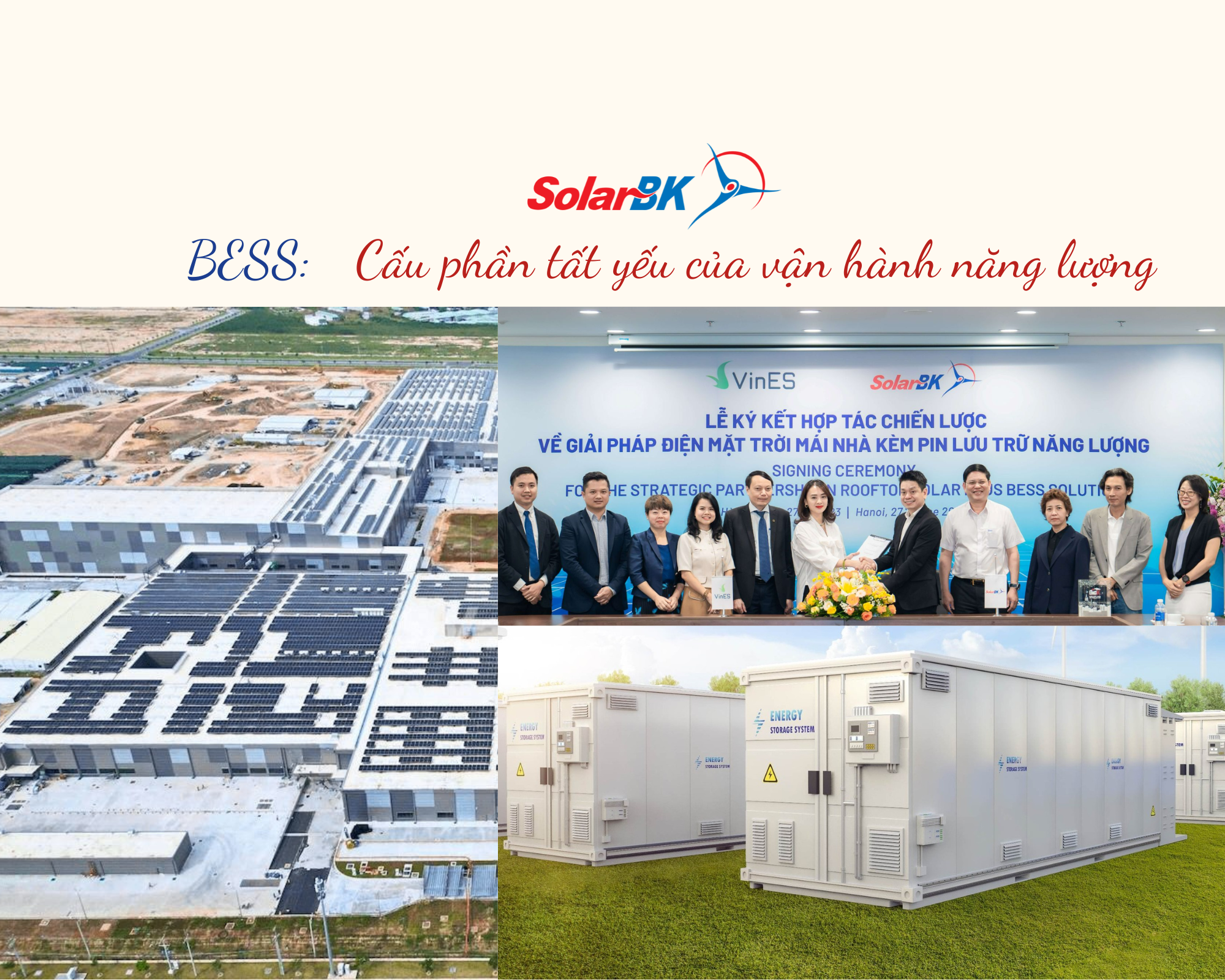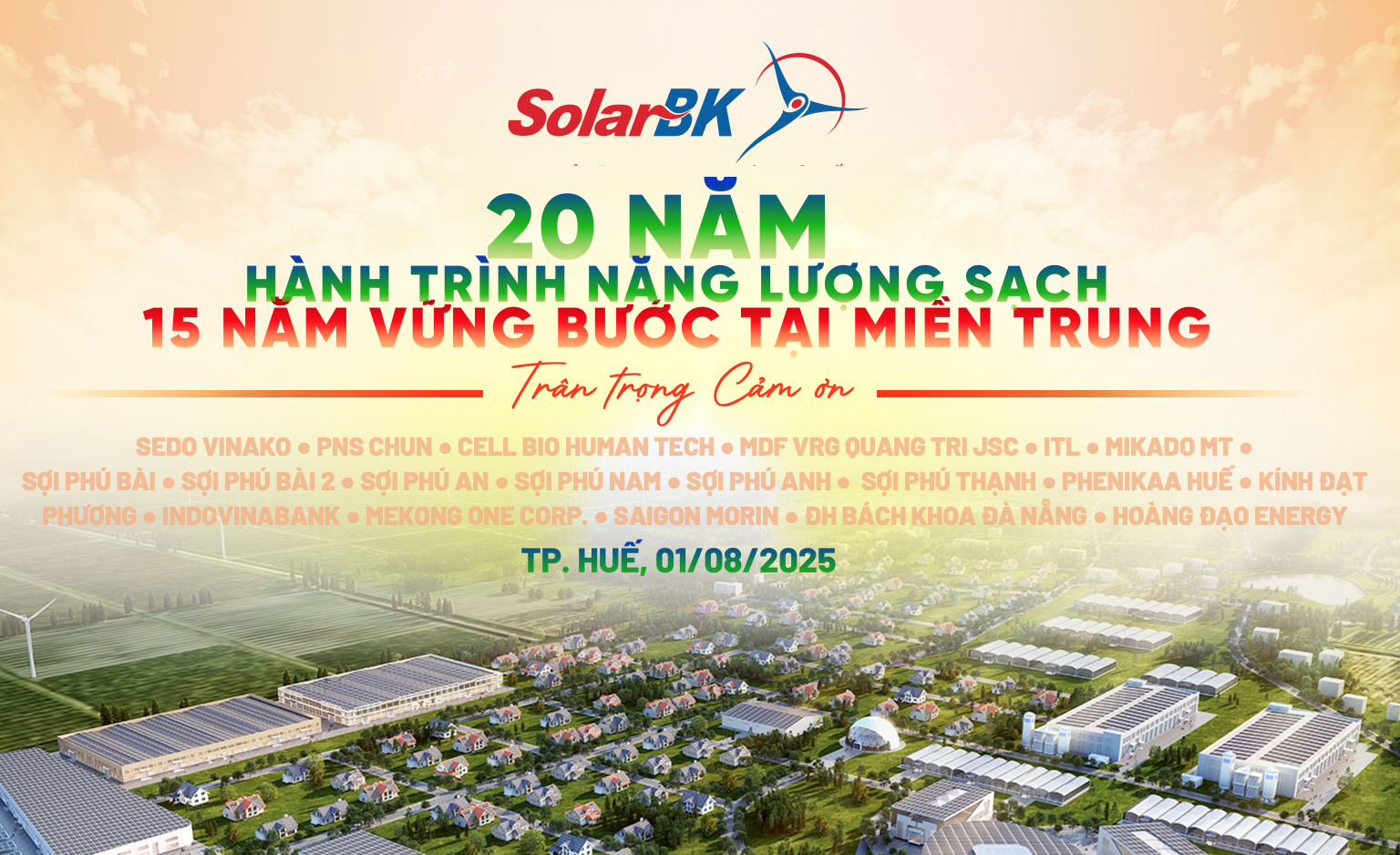Growing up in a family with a tradition and passion for renewable energy research, Mr. Nguyễn Dương Tuấn, CEO of Bach Khoa Solar Energy Company (SolarBK), followed his parents from a young age, joining them in scientific projects and traveling across remote regions such as Hòn Tre, Bạc Liêu, Thiềng Liềng, and Cán Gáo to film experiments on wind power projects as early as the 1990s. Those old VHS tapes, which he later digitized while studying in Canada, became not only a vivid archive of Vietnam’s clean energy development history but also the quiet flame that nurtured his ideal of returning home to continue his parents’ unfinished journey.
No one in the family ever pursued business, nor did he think of becoming an entrepreneur. But looking back on nearly 30 years of his parents’ quiet dedication to clean energy research—dozens of studies and scientific projects that had not been commercialized—Tuấn realized that if he did not bring them into real life, it would be a great waste.
That thought led to the founding of SolarBK in 2006, with a clear mission: “bringing clean energy into everyday life.”
SolarBK started very small, producing solar water heaters for households. But soon, the company realized that to achieve sustainable growth, it had to scale up to industrial-level projects, bringing “Bach Khoa spirit” and “true technology” into every solution.
Its first industrial-scale project at the Majestic Hotel (Ho Chi Minh City) marked a turning point for the fledgling company.
“Customers trusted our technical solutions not because of the brand but because of the solid scientific foundation our SolarBK team inherited from Bach Khoa University and years of quiet research,” said Tuấn, recalling the company’s first hesitant yet persistent steps in two decades of pioneering clean energy.
Nearly 20 Years of Clean Energy – Foundations and Milestones Question: After nearly two decades of persistence in clean energy, what are the clearest proofs that SolarBK has laid a foundation for Vietnam’s renewable energy industry? Tuấn: Honestly, we don’t dare claim to have laid the foundation for the entire renewable energy sector in Vietnam. That credit belongs to generations before us—professors and researchers at Hanoi University of Science and Technology, Thai Nguyen University of Technology, the Institute of Energy, and Ho Chi Minh City University of Technology—who had been quietly nurturing passion since 1975.
SolarBK, founded in 2006 within that scientific cradle, sees itself as a successor of that legacy, contributing by pursuing commercialization and sustainable development. That was not an easy choice, especially when the market was vague. From early on, SolarBK implemented both household and industrial solar water heating systems with integrated central control and smart monitoring—not merely assembling individual devices.
From this early success, SolarBK moved on to the “Lighting up Truong Sa and DK1 Platforms” project, deploying hybrid systems of solar, wind, and diesel. This was Vietnam’s first offshore renewable energy storage and lighting project, contributing to sovereignty protection and winning two global energy awards.
SolarBK was also the first to cooperate with EVN (Vietnam Electricity) to pilot the ESCO model, helping businesses save energy without upfront investment.
During the 2017–2020 renewable energy boom, while many companies chased short-term gains, SolarBK warned against the risks of mass installation of low-quality solar panels and instead quietly focused on the self-consumption segment—where demand and efficiency are real—paving the way for sustainable development.
The Biggest Barrier – Not Technology but Trust Question: As one of the pioneers before the market was even formed, what was SolarBK’s greatest challenge? Tuấn: The biggest barrier was not technical—it was customer trust. In the early stage, when renewable energy was unfamiliar, convincing customers to believe in the technology was the hardest challenge. Questions always arose: When will we recoup investment? Will the system run reliably?
Our approach was to listen to these concerns and offer practical solutions: from the ESCO model with EVN (where customers invested nothing upfront) to implementing projects under harsh conditions such as Truong Sa and DK1—proving quality through real-world performance.
This hands-on commitment gradually built trust, proving that clean energy is not just an ideal but also a sustainable economic and social value.
The Philosophy That Defines SolarBK Question: SolarBK seems quiet but steady. What philosophy has shaped its uniqueness over two decades? Tuấn: We believe that clean energy is an irreversible trend of the future and also a responsibility to society, the environment, and future generations. But to make this real, businesses cannot rely solely on preferential policies. Policies may give an initial boost, but renewable energy can only be sustainable when it stands on economic value and real demand.
Our philosophy is: “Success begins with aspiration and belief in the future of clean energy.” But that alone is not enough. One more element is required: resilience—the courage to go to the end of one’s choices, to correct mistakes, and to keep moving forward.
From this spirit, the “SolarRunners” culture was born—an activity inspired by running. Employees, especially managers, must run at least 10km together, not for fitness but to train persistence and the spirit of never giving up.
Because, as we believe, doing clean energy is like running a marathon: anyone can start enthusiastically, but by the “30th km,” fatigue, pain, and doubt set in. At that point, faith and teammates keep you from falling.
That blend of belief, aspiration, and perseverance—and the conviction that “to go far, we must go together”—has helped SolarBK not only survive but also lead in clean energy for more than a decade.
Surviving the “Ice Age” of 2021–2024 The period 2021–2024 was dubbed the “Ice Age” of Vietnam’s renewable energy sector—stalled policies, dried-up capital, and a paralyzed market.
Tuấn: Unlike 2017–2020, when dozens of companies entered the market daily, by 2023 only a handful remained. SolarBK survived not by luck but by pursuing a clear, counter-market strategy: staying true to the self-consumption model, focusing on real-demand customers—especially FDI enterprises needing green certificates to join global supply chains.
A turning point was our strategic joint venture with Banpu (Thailand) in 2022. Unlike pure financial investors, Banpu is a long-term partner, co-building a clean energy ecosystem. This partnership expanded our financial capacity and allowed us to keep investing even when the market froze.
Long-term Strategy – Technology, R&D, and Localization SolarBK has always defined itself as a technology company with engineering DNA.
We invest heavily in R&D to create truly optimal solutions—lower operating costs, extend system lifespan, and reduce risks. To ensure quality, we moved upstream, establishing our own solar panel and renewable equipment manufacturing.
This was not about chasing volume, but about quality control from the source. By producing in-house, we ensure system durability and reliability—our long-term promise to customers.
Today, SolarBK is further investing in smart energy platforms, enabling two-way interaction with the national grid and integrating data from nearly 2,000 solar systems and 300 monitoring stations nationwide. Our vision is to build a renewable energy data infrastructure that supports real-time verification, REC trading, and even P2P energy exchange like in Singapore.
Strategic Projects – From LEGO to VinFast Recent landmark projects have reaffirmed SolarBK’s position:
Strategic partnership with Banpu – flexibility to shift roles from EPC contractor to investor, building trust with major clients such as SCG’s PRIME tile factory.
LEGO factory in Binh Duong – the world’s first Net Zero LEGO plant. SolarBK was chosen as a strategic partner (not subcontractor), meeting LEGO’s stringent technical standards and integrating anti-reverse flow and real-time monitoring.
VinFast’s 30MW rooftop solar project in Hai Phong – all panels supplied by SolarBK, a proud “Make in Vietnam” achievement.
Vincom Retail solar systems nationwide and other flagship projects showcasing both technology and national pride.
Carbon Credits and Green Economy Carbon credits are becoming a key element in global green transition.
Tuấn: With our renewable ecosystem and technology platform, we are actively connecting with domestic and international organizations to engage in this market. SolarBK plays the role of an infrastructure connector, helping businesses transition to clean energy and access REC solutions transparently and efficiently.
As a member of the Ho Chi Minh City Green Business Association (HGBA), we join pioneering enterprises in shaping Vietnam’s green economy.
Resolution 57 – A New Push for Tech Enterprises Tuấn: Resolution 57 is especially meaningful for us—it officially recognizes science, technology, and innovation as central drivers of Vietnam’s socio-economic development.
It opens a legal framework for private enterprises to collaborate with universities and research institutes on a market basis, enabling talented scientists to bring research into practice and be rewarded for the value they contribute.
By: Hứa Phương – Quỳnh Anh
Design: Diệu Thảo
Publication Date: August 25, 2025 Read the original article on The Leader
here.





